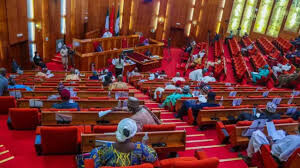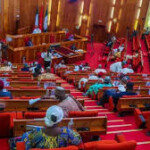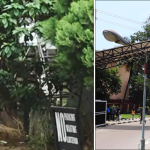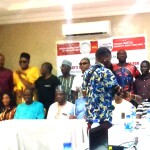As Nigeria’s National Assembly debates a landmark proposal to reserve 10 percent of seats for women and 5 percent for persons with disabilities (PWDs) in the Senate and House of Representatives, participatory governance in the country appears set for a critical litmus test historically. With women occupying just 4.2% of parliamentary seats and no known elected lawmakers with disabilities, the proposal is undeniably urgent. But the road from symbolic inclusion to meaningful participation is riddled with political, cultural, and institutional obstacles — as shown in other African countries that have walked this path.
Quotas have become a popular tool in addressing representational gaps in political spaces globally. They aim to correct structural imbalances by ensuring the presence of historically excluded groups, particularly women and persons with disabilities, within decision-making processes. For Nigeria, where over 49% of the population is female and at least 35 million citizens live with a disability, these proposed quotas represent a long-overdue intervention in a democracy that often sidelines marginalized voices.
The rationale behind such affirmative action is well-founded. Research shows that when women and PWDs are visibly represented in governance, legislative priorities tend to shift toward broader social issues such as health, education, inclusive infrastructure, and anti-discrimination. In Uganda, for example, the inclusion of five elected MPs with disabilities since the 6th Parliament has brought disability issues to the fore, resulting in the landmark 2006 Persons with Disabilities Act. Similarly, Kenya’s 2010 Constitution established reserved seats through its “two-thirds gender rule” and special interest groups provisions, resulting in increased – albeit still contested – participation of women and marginalized communities.
However, lessons from Uganda and Kenya also caution against uncritical optimism. In Uganda, although PWD representation exists by law, critics argue that the selection process is often controlled by political elites and disabled persons' organizations loyal to the ruling party. This has led to accusations of tokenism and co-option rather than true empowerment.
Kenya has also struggled to operationalize its quota system effectively. Despite constitutional guarantees, women’s representation in parliament remains below the one-third minimum. Courts have repeatedly ruled that the government is in breach of its constitutional obligation, yet implementation lags due to political resistance and elite manipulation. This indicates that legal quotas, while essential, are insufficient without robust political will, transparent implementation mechanisms, and civic pressure.
Nigeria must avoid replicating these pitfalls. Reserved seats must not become a cloak for political patronage, where nominees serve elite interests rather than those of the communities they purport to represent. The absence of clear, transparent, and merit-based processes for selecting candidates to fill reserved seats could deepen public cynicism and further alienate the very groups the policy seeks to empower.
Beyond elite capture, there are equally deeper structural challenges. Nigeria’s political space remains one of the most expensive in the world, often driven by high campaign costs and a monetized political culture. For women and PWDs, who are often economically disadvantaged, these conditions create formidable barriers to political participation. For instance, a 2022 report by Yiaga Africa highlighted that financial constraints were a major barrier to women's political ambition, with similar challenges noted by disability rights groups.
Electoral violence and political thuggery also disproportionately affect women and disabled persons. Women candidates in Nigeria frequently report threats, intimidation, and even physical attacks. For PWDs, many polling units remain physically inaccessible, and the lack of inclusive electoral materials and sign language interpreters further impedes their participation.
In addition, deep-rooted patriarchy and stigma against disability compound these institutional challenges. The pervasive notion that women or PWDs are “unfit” for leadership continues to shape voter behavior, party nominations, and media coverage. Quotas may place individuals in legislative seats, but unless these societal attitudes are confronted, the impact of representation will be muted.
To turn quotas into genuine empowerment, Nigeria must pursue a multi-pronged approach: First, the process for identifying candidates for reserved seats must be clear, democratic, and inclusive of grassroots voices. It should involve credible civil society organizations and community-based networks that reflect the diversity of women and disability communities. Second, Nigeria must invest in long-term capacity development for women and PWDs in politics. Uganda’s success with training programs like the Uganda Women Parliamentary Association (UWOPA) offers a model. Nigeria should also explore a mentorship pipeline to prepare future leaders beyond reserved seat mechanisms. Third, campaign finance reform is imperative to level the playing field. Public funding for candidates from marginalized groups, enforcement of spending limits, and sanctions against electoral violence must be implemented rigorously.
Moreover, parties must be mandated, through electoral law reforms, to reserve a portion of their internal nominations and leadership roles for women and PWDs. This promotes integration across the political system, not just in reserved legislative slots. In addition, efforts must be made to change societal attitudes through sustained civic education, media campaigns, and visibility for female and disabled leaders. Rwanda’s experience shows that representation, when combined with cultural change initiatives, can radically alter public perceptions.
Nigeria’s proposal to allocate reserved seats for women and persons with disabilities is a critical step toward inclusive democracy. But to move beyond tokenism, the country must design implementation mechanisms that are transparent, meritocratic, and resilient to elite manipulation. Learning from other African countries, Nigeria must also challenge structural inequalities and cultural norms that have long kept marginalized groups at the political periphery.
Representation matters —only when it is meaningful, empowering, and backed by systems that enable genuine participation. The choice before Nigeria is clear: either use this proposal as a springboard for systemic transformation, or let it become yet another well-meaning reform that fails to change the status quo.







